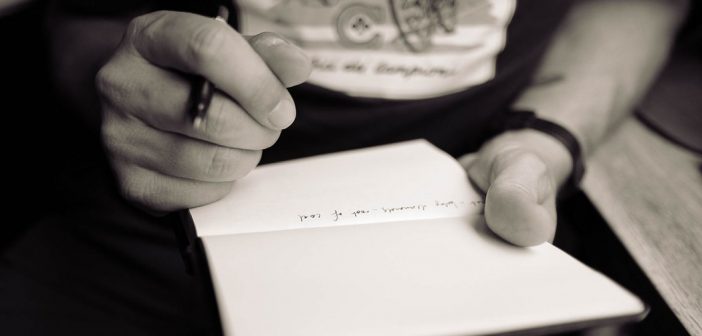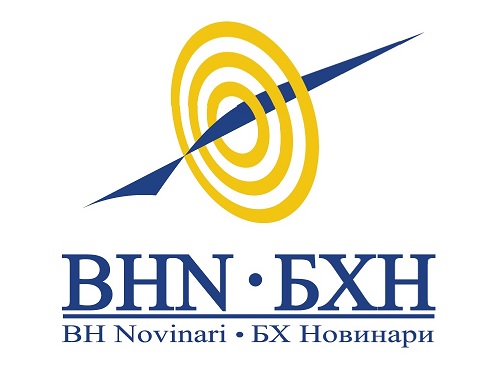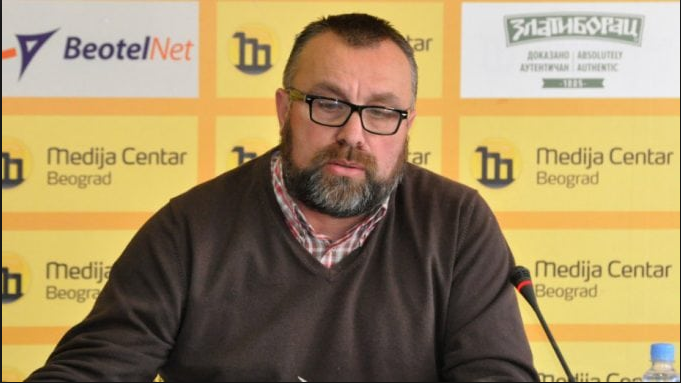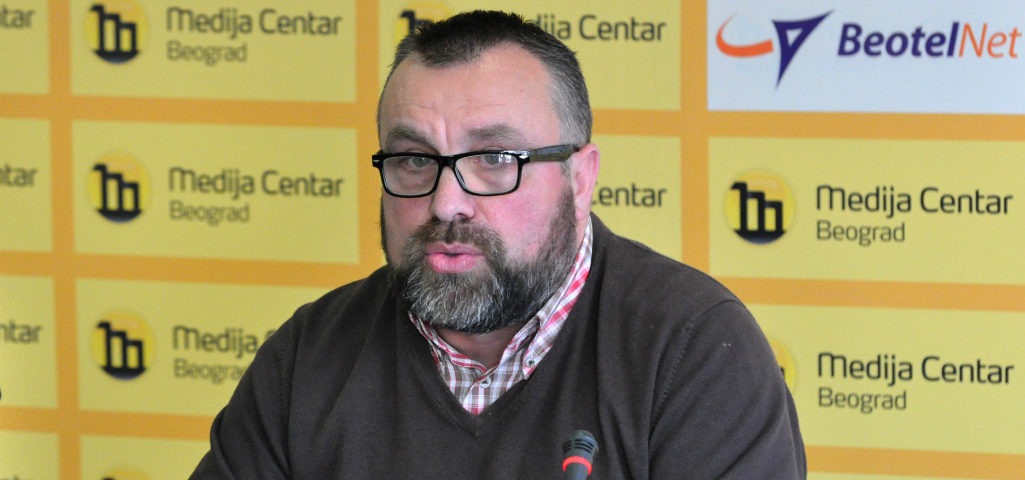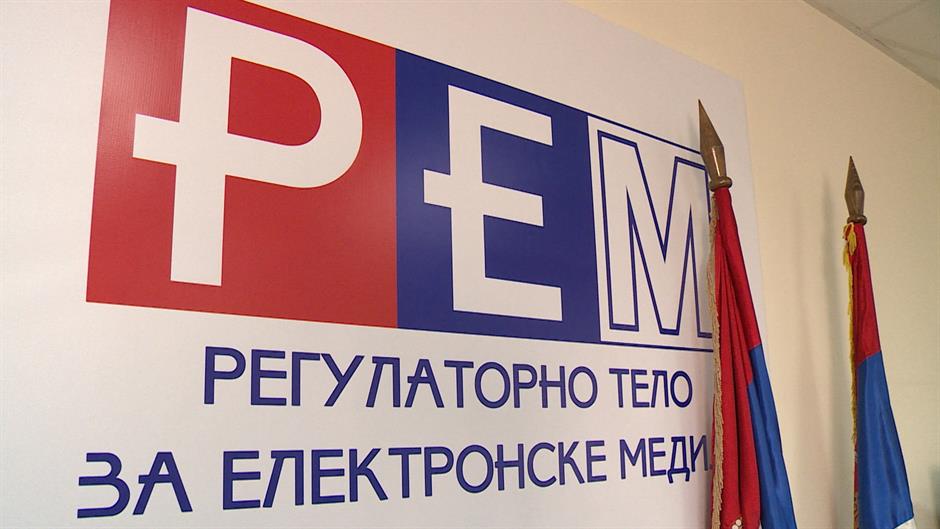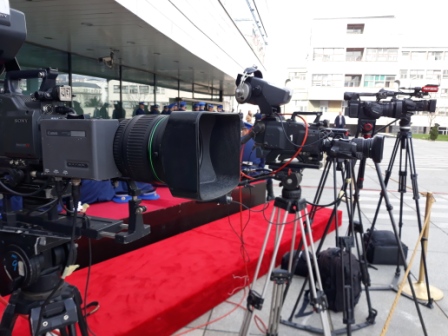Оставени сами на себе, со ниски примања за својот труд, недостаток на техничка опрема, недостаток на сниматели и фоторепортери како и службени возило, се секојдневните предизвици на дописниците од внатрешноста.
Сузана Мицева веќе девет години е дописничка од Струмица. Мотивирана од желбата да искуси нешто ново, да ги раскажува локалните приказни и да влијае врз решавање на проблемите, ја искористила шансата кога националните медиуми барале дописници. Но, со тоа ги посведочила и лошите услови со кои се соочуваат овие новинари.
„Дописниците имаат многу проблеми. Работат за минимални плати, кои и со дописничкиот хонорар ретко ја надминуваат просечната плата во Македонија. Дваесет и четири часа се на располагање на националните медиуми, а особено за викенди и празници, кога редакциите се испразнети во Скопје. Работиме со застарена опрема, којашто честопати е неупотреблива. Покрај тоа, живееме во мали средини и честопати доаѓаме во конфликти со одредени бизнис и политички групи, поради темите на коишто работиме“, раскажува Мицева.
Слично искуство имал и Зоран Димоски од Тетово кој со дописништво се занимава веќе 10 години. Пред три години започнал да соработува со повеќе национални медиуми, бидејќи како што вели финансиската ситуација со локалните медиуми е лоша.
„Кој било во Македонија да прашате некој што работи во локален медиум, гледа „тезга“ да фати за да може да донесе дома солидна плата“, вели тој.
„Во другите градови, платите што ги земаат новинарите најпрво се на пола работно време осигурани и земаат плати од 6-12 илјади денари“, додава.
За достоинствена плата, тој мора да работи во локален медиум и како дописник.
„Добро е што во последно време, медиумските куќи за кои работам ми дозволуваат да работам и за други медиуми затоа што и самите се свесни дека платата е многу ниска“, кажува Димоски.
Локалните теми поттиснати од високата политика
Во националните медиуми сè помалку им се дава простор на локалните приказни од внатрешноста заради случувањата на големата политичка сцена. Јавноста е презаситена од дневната политика и сака да слушне информации и за другите градови, смета Димоски.
„Локалните медиуми се занимаваат со суштинските проблеми на луѓе, додека во Скопје не се занимаваат. Многу ретко, единствено ако има на пример некој светски ден и тогаш ќе направат приказна, но тука завршува. Ние контактираме постојано со луѓето“, вели овој новинар.
„Понекогаш се шегувам – се чувствувам како во притвор, но притворот ми е голем колку Полошкиот регион. Не сум излезен од овде – без разлика дали има или нема настан“, додава тој.
Дефиницијата за дописник на Димоски гласи: „Тоа е кога не се регулирани обврските и должностите меѓу сопственикот на медиумот, уредникот и новинарот. Пример, јас за тоа време додека сум дописник не се знае кога имам слободен ден. Се случува и три дена да нема ништо, но пак мора да си присутен“.
И тој како и Мицева се соочува со немање услови за работа. Неговите колеги од медиумите за кои известува, вели тој, имаат автомобил, службен телефон, интернет, компјутер и техника која им е обезбедена, додека Димоски мора сам да се снајде.
„На пример, се расипала кола не можеш да отидиш на настан. Или честопати се случува кога одиме со службено возило да го удриме некаде, да направиш некоја сообраќајка, тоа мора сам да го платиш. Не сме ни осигурани“, раскажува тој.
Дописниците трпат поголем притисок
Трудот на дописниците од внатрешноста е потценет и понижен, што придонесува тие да се бројат на прсти. Новинарите кои работат за дел од националните медиуми во својство на дописници се на работ на преживување и имаат ниски примања за својот труд, со ретки исклучоци. Голем дел од дописниците поради тешката социјална и економска состојба го напуштаат новинарството. Ова дополнително доведува до се помалку информации од локално значење, или пак, и тие што ги има се погрешни.
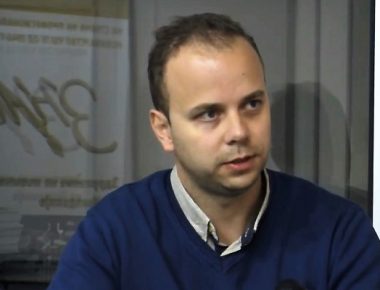
Драган Секуловски
Ова се најчестите шоплаки кои ги добивале претставниците на Здружението за новинари на Македонија – ЗНМ при средби со своите колеги. За некои поплаки реагирале јавно или понудиле правна помош, но често поплаките се и анонимни, вели неговиот извршен директор Драган Секуловски.
„Во случаите кога сме биле замолени да не говориме јавно за жал не сме биле во ситуација да направиме голема промена, а ова било случај и кога дел од дописниците работеле без никаков договор за ангажман со што имало тешкотии да се покренат правни мерки. Имаме многу примери за притисок кон дописниците, но и генерално кон новинарите кои работат во локалните медиуми, а еден од нив е и праксата да им биде задржуван дел од платата на новинарите од страна на менаџментот преку буквално земање на нивните дебитни картички и давање пари на рака. Во конкретниов случај, групата на новинари кои ни го пријави овој проблем не сакаа да преземеме ништо стравувајќи дека ќе ја изгубат својата работа а со тоа и дел од таа скромна плата која чесно ја заработуваат“, објаснува Секуловски.
Тој ги охрабрува своите колеги јавно да говорат за притисоците и проблемите, бидејќи како што вели само така може да се идентификува оваа негативна пракса и да се надмине.
Според истражувањето на Самостојниот синдикат на новинари и медиумски работници – ССНМ, дописништвото бележи пад, и засега само десетмина новинари се повремено или трајно ангажирани во некои од националните медиуми или веб-портали кои фигурираат во Скопје.
„Што мислите колку слободно, колку храбро и бескомпромисно може да работи новинар платен 4.000 денари? Што мислите како гордо и достоинствено се чувствува кога од таа сума ќе мора на сопственикот на медиумот да му врати 1.700 денари затоа што дополнително работи како дописник за национална куќа, а користи камера, снимен материјал од локалната? Затоа што газдата ги поседува и камерата, и матерјалот и камерманот, но и душите и достоинството на вработените.
Што мислите колку квалитетно работи новинар кој треба да продуцира осум прилога во денот ако сака да извади минимална плата? Колку пати може да ги провери фактите, колку бргу може да се подготви за темата кога во еден ден треба да пишува за субвениции, за бесправна градба и за филмски фестивал? Ве шокира ли овој фото робот на македонскиот дописник од вантрешноста?

Тамара Чаусидис – ССНМ
Не сте знаеле или не сакате да знаете? Но, затоа на многумина им се полни усти критика за квалитетот на прилозите, за квалитетот на новинарството во Македонија“, на темата пишуваше и Тамара Чаусидис, претседателка на ССНМ.
Според неа, условите за работа на македонските новинари се лоши, но тоа е веќе познато, додека условите на македонските дописници ќе ги опише со еден збор – невозможни. Чаусидис вели дека проблемот на новинарите е што нивната работа не е механичка, не е автоматизирана, тие создаваат, тие сведочат, тие се очите и ушите и гласот на јавноста.
„Слушнете ги дописниците, дајте им збор на тие луѓе кои го познаваат теренот подобро од која било новинарска величина во Скопје, кои знаат кои се моќниците и сивите еминенции во нивното место, кои знаат како се доаѓа до информација и од каде да ја бараат, да ја работат својата работа достоинствено, со пристојни плати и без страв дека секој момент ќе ја загубат работата. Така и само така, наместо стеснет, дезориентиран ќе имаме информиран и артикулиран новинарски збор од внатрешноста“, пишува таа.
Притисокот е поголем во средина кадешто секој со секој се знае, потврдува Мицева.
„Не помал проблем е што кога телевизиите кратат на трошоци, дописничките мрежи се први на удар. Дописниците се буквално на маргините на новинарството и иако ми е тешко да го признаам тоа сметам дека се незаштитени и со малку инструменти во раце за подобрување на состојбата“.
Според неа, дописниците би требало да се вработуваат и да имаат ист статус со новинарите во останатите редакции.
„Да им се дадат на располагање ресурси, а за тоа е потребна волја на самите медиуми: возило, опрема, затоа што нашата работа е теренска и ние речиси секој ден сме во различен град, различно населено место, а за тоа едвај добиваме надомест за гориво, а камоли амортизација на возило или патни трошоци, коишто пак, ги добиваат новинарите од истиот медиум кои на пример од Скопје одат на снимање во Кавадарци“, смета Мицева.
За Секуловски, реформите потребно е да почнат од Македонската радио телевизија.
„Се додека јавниот сервис функционира со дописници кои можат да се пребројат на една рака не можеме да дадеме и позитивен пример кон комерцијалните медуми. Граѓаните заслужуваат да имаат информации на МРТ од локален карактер зошто сите граѓани плаќаат за овој медиум. Информации одлокален јавенинтерес треба да има исто така и на приватните национални медиуми доколку така цени уредувачката политика на овие медиуми и имаат желба да бидат атрактивни на национално ниво“, истакна тој.
Емилија Петреска


